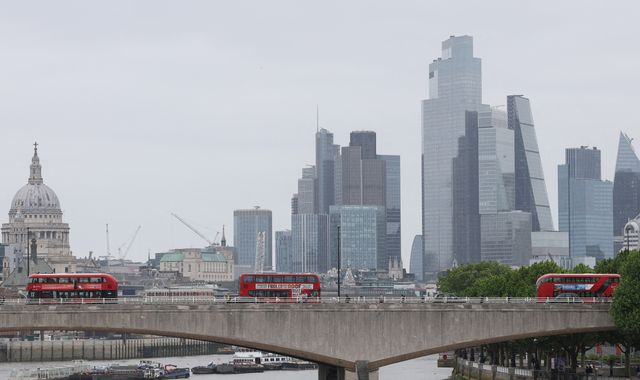Average weekly earnings slowed to 4.6% down from 5%, while pay excluding bonuses continued to grow 5%, according to data from the Office for National Statistics (ONS) for the three months to June.
It means the gap between inflation – the rate of price rises – and wage increases is narrowing, and the labour market is slowing. Inflation stood at 3.6% in June.
Money latest: Supermarket coffee beats big brands in Americano taste test
The number of employees on payroll has fallen in ten of the last 12 months, with the falls concentrated in hospitality and retail, the ONS said. It came as employers faced higher wage bills from increased minimum wages and upped national insurance contributions.
“Job vacancies, likewise, have continued to fall, also driven by fewer opportunities in these industries,” the ONS director of economic statistics, Liz McKeown, said.
The number of job vacancies fell for the 37th consecutive period and in 16 of the 18 industry sectors. Feedback from employers suggested firms may not be recruiting new workers or replacing those who left.
Unemployment remained at 4.7% in June, the same as in May.
The ONS, however, continued to advise caution in interpreting changes in the monthly unemployment rate due to concerns over the figures’ reliability.
The exact number of unemployed people is unknown, partly because people do not respond to surveys and answer the phone when the ONS calls.
What does it mean for interest rates?
While wage rises are slowing, the fact they’re still above inflation means the interest rate setters of the Bank of England could be cautious about further cuts.
Higher pay can cause inflation to rise, which the central bank is mandated to bring down to 2%.
But one more interest rate cut this year, in December, is currently expected by investors, according to data from the London Stock Exchange Group (LSEG).
The evidence of a weakening labour market provides justification for the interest rate cut of last week.
This breaking news story is being updated and more details will be published shortly.
Please refresh the page for the fullest version.
You can receive breaking news alerts on a smartphone or tablet via the Sky News app. You can also follow us on WhatsApp and subscribe to our YouTube channel to keep up with the latest news.





























